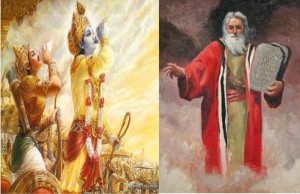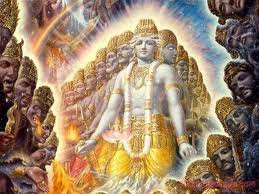Welcome to the first post of Project Conversion: Aftermath (PC/Aftermath). Now that you’ve spent a year watching me personally nosedive into various faiths of the world, we will now tackle some of life’s most challenging issues using scripture and wisdom from the faiths we learned about.
Each month will host one topic/challenge. I will make a post at least twice weekly (Monday and Friday mornings) which focus on these issues. If anything personal happens along the way that might contribute to the discussion of the featured topic–depending on depth and significance–I’ll throw that bad boy in there as well.
Enough yapping, let’s get started.
PDD. In medical vernacular, PDD refers to “Pervasive Developmental Disorder” which include five specific conditions including Autism and Asperger syndrome. These conditions mark delays in basic functions such as communication and socialization.
Ask any parent or medical professional about the daily struggle of both suffering from these conditions and caring for loved ones with PDD. It’s heart-breaking because parents, more often than not, simply cannot communicate fully with a child suffering from this condition.
I believe this happens to us spiritually as well.
In this week’s series, we’re going to look at two of the religious world’s most famous characters: Moses, the man chosen by God to lead the Hebrews out of Egypt (story found in the Tanakh or Christian “Old Testament), and Arjuna, a Pandava prince aided by Lord Krishna who fought in the Kurushetra war over the rightful heir to the throne (story found in the Bhagavad Gita).

Today, we’ll begin with Moses.
According to the biblical account, Moses was a Hebrew born in a time of Hebrew captivity in Egypt. By now, his people had been slaves (slaves at most, second-class citizens at least relegated to hard labor) in Egypt for around 400 years. To save him from death by Pharaoh’s decree, Moses’s mother sent him down the river where he was eventually adopted by Pharaoh’s sister. He thus grew up in the royal family.
But things got complicated.
One day, he discovered an Egyptian abusing one of the Hebrews and killed him. Soon, Pharaoh discovered the incident and ordered his death. Moses fled into the desert toward Midian. There, he linked up with the priest of Midian, married one of his daughters (for rescuing them at a well), and lived comfortably for many years as a shepherd.
Moses thought he had it made. He was comfortable and complacent. And that’s usually when the universe begins screwing with us.
One day while tending his flock, Moses noticed something.
“Now Moses was tending the flock of Jethro his father-in-law, the priest of Midian, and he led the flock to the far side of the wilderness and came to Horeb, the mountain of God. There the angel of the LORD appeared to him in flames of fire from within a bush. Moses saw that though the bush was on fire it did not burn up. So Moses thought, “I will go over and see this strange sight—why the bush does not burn up.” –Exodus 1-3
Moses is about to get the spiritual gut punch of his life, and “weird/strange” is the all-time favorite bait the divine uses to get our attention. There’s a bush that’s suddenly on fire. I think I’ll go check it out. Curiosity will either kill the cat or make you a prophet. There is no middle ground.
So our man Moses checks out this bush. When he gets there, all bets are off.
“When the LORD saw that he had gone over to look, God called to him from within the bush, “Moses! Moses!”
And Moses said, “Here I am.”
“Do not come any closer,” God said. “Take off your sandals, for the place where you are standing is holy ground.” Then he said, “I am the God of your father,the God of Abraham, the God of Isaac and the God of Jacob.” At this, Moses hid his face, because he was afraid to look at God. —Exodus 3: 4-5
Verse four trips me out. The cavalier response of Moses after the voice from the bush just called his name is the first marker of Moses’s spiritual PDD. Dude, a bush just called your name and without any further description, he basically says, “Hey, what’s up?”
Perhaps we’re missing some narrative here, but God or not, I’d freak out and bolt if a bush called my name. Moses wasn’t expecting God or anything else to uproot his life. His comfort level rendered him disabled…for the moment.
God in the bush (or at least one of his angels) goes on to freak Moses out by telling him who he is. Moses then takes off his shoes (holy ground) and hides his face. Now he’s waking up. Then, God tells Moses that he’s been chosen to go to Egypt on his behalf and free the Hebrews from captivity.
The first reaction of Moses is a series of “Yeah but” moments of doubt, uncertainty, and objection.
“But Moses said to God, “Who am I that I should go to Pharaoh and bring the Israelites out of Egypt?” –Exodus 3: 11
“Moses answered, “What if they do not believe me or listen to me and say, ‘The LORD did not appear to you’?” –Exodus 4: 1
“Moses said to the LORD, “Pardon your servant, Lord. I have never been eloquent, neither in the past nor since you have spoken to your servant. I am slow of speech and tongue.” –Exodus 4: 10
“But Moses said, “Pardon your servant, Lord. Please send someone else.” –Exodus 4: 13
God counters each of these objections time and again with either explanations or signs, but Moses–because of his spiritual PDD–fails to see the big picture: God’s picture. I can see God doing a face-palm at this point. Moses is failing to realize his purpose, dharma, and destiny.
But I want you to see something else. Moses, like Pharaoh later, fails to align himself with God’s design even in the face of various displays of his power.
How often do we experience this ourselves?
Sometimes we become so complacent with our blessings and good fortune that we develop spiritual PDD and therefore have difficulty seeing/hearing the divine. It’s easy to say that you’d listen to God and do whatever he told you if he appeared as a burning bush, but Moses shows us that our inability to see/hear the divine isn’t because of the medium God uses to communicate with us, but because we fail to seek him in all things/situations.
Or we just get lazy/complacent.
Moses shows us how self-doubt and personal comfort zones cripple our ability to see our purpose. What are some ways you can open yourself up to God’s purpose for you today? Change is rarely comfortable and God, through his transformative power, is always an advocate of growth and change throughout many scriptures.
On Friday we’ll look at the challenge of Prince Arjuna as he faces a bitter war and seeks advice from Lord Krishna.


